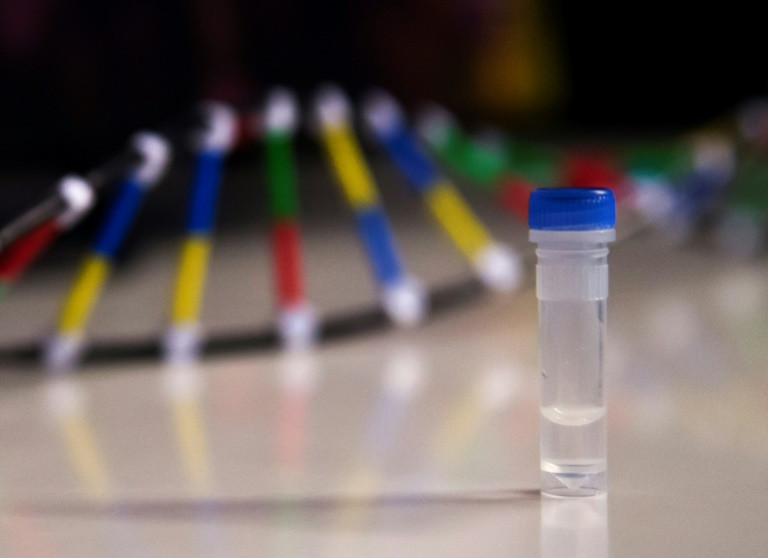Indonesia needs more intense genome surveillance to detect new virus variant: Minister
Change Size
 The genome is like the human instruction manual, where words are genes and letters our DNA. (AFP/Robyn Beck)
The genome is like the human instruction manual, where words are genes and letters our DNA. (AFP/Robyn Beck)
U
nlike neighboring Singapore, Indonesia has not detected the new SARS-CoV-2 variant first discovered in the United Kingdom, but that may be due to the country’s lack of genomic and molecular monitoring, a minister has said.
To detect the new variant, labs must carry out whole genome sequencing, but not all labs in the country could do so, Research and Technology Minister Bambang Brodjonegoro said. Even those that already did so might still need to "routinely intensify whole genome sequencing SARS-CoV-2" among cases in the country, he said.
Studies are still underway on the new variant, referred to as the B.1.1.7 lineage, but it is believed to be 40 to 70 percent more transmissible, Reuters reported. There has yet to be evidence concerning the new variant's impact on disease severity and morbidity.
Read also: Indonesia prepares measures against UK’s new coronavirus variant
It remained a concern nonetheless given the need to protect risk groups, including the elderly and people with comorbidity factors, from exposure to the virus, Bambang said.
The elderly and people with underlying health conditions make up the largest share of Indonesia’s COVID-19 fatalities and were more likely to develop severe illnesses from the infection.
The UK was one of the countries with the best genomic and molecular surveillance and monitoring in the world, which allowed them to detect virus mutation, he went on.
"There's still no evidence that the new variant has spread to Indonesia, although we need to acknowledge that our surveillance and monitoring is not as advanced as [Britain’s]," Bambang said.
"There must be stricter surveillance and partnerships with universities and other parties carrying out whole genome sequencing for data- and information-sharing; there must not be anything to hide, because we're fighting against an invisible enemy.”
Various countries outside the UK and Singapore have also detected the new variant, and some have resorted to imposing stricter measures on people traveling from the UK.
Eijkman Institute for Molecular Biology is among the few that have carried out whole genome sequencing in the country and has, according to Bambang, mapped out the genome of around 1,000 samples from various Indonesian regions so far.
Eijkman Institute head Amin Soebandrio said the lab was still studying the genome sequences of samples taken in November and December. Other than Eijkman, Amin, said other institutions having submitted whole genome sequencing data to the Germany-based GISAID database included Airlangga University, the Indonesian Institute of Sciences (LIPI), Gadjah Mada University, the Agency for the Assessment and Application of Technology (BPPT), Bandung Institute of Technology and Padjadjaran University.
"Not all labs running PCR [polymerase chain reaction] tests can do whole genome sequencing. Adequate equipment, skills, knowledge and experience are needed," he told The Jakarta Post on Thursday.
Read also: Experts warn of future spike in COVID-19 fatality rate
Amin agreed that improving genomic and molecular surveillance and monitoring was vital to taking necessary measures should the new variant be found in the country.
Virus mutations occurred naturally, and viruses could either become weaker and eventually eliminated or adjust to their environment, so that they could fit into it better and last longer, although not necessarily growing more malignant, he explained.









